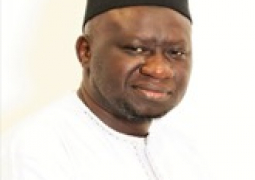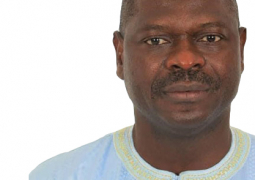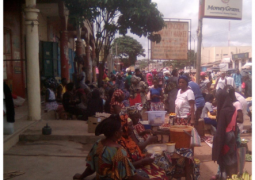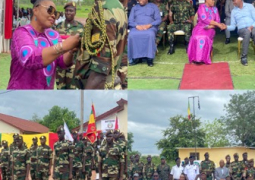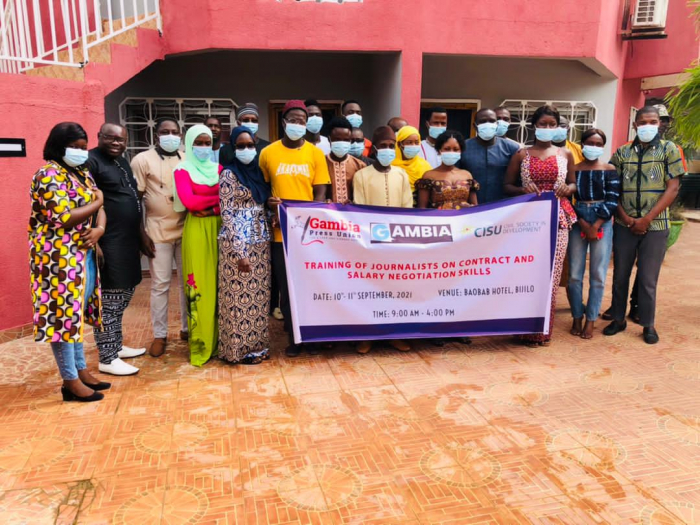
He said this during the training of senior journalists and editors on Contract and Salary Negotiation Skills.
The training was part of a project being implemented by the GPU in partnership with Gambia Media Support (GAMES) with funding from the Civil Society in Development (CISU).
The objective of the training is to ensure media workers know how to negotiate their contract, salary and learn which aspects to take into account when signing their contract.
Mr. Bojang said the issue of salary is at the core of every media practitioner and it is also a priority for the Gambia Press Union. He said they can have projects and implement them. They can have a vision and mission but the most important thing as a union is to see that every media practitioner is treated fairly, paid fairly, have a conducive working environment and at the end of each month, all of them go home with just more than a basic.
He continues that most of the common complaints journalists make are about salary or unacceptably low wages or poor working conditions. “The main problem is, in a country where we don’t have a standardised salary structure; employers can give you as low as one thousand dalasis a month or a salary far above the ground,” he said.
He added that the training will help to broaden their understanding of salary negotiation and help them know what they will put forward when they go for interviews and when they are offered salaries that are not only illegal but do not make sense at all.
“If we don’t get the media owners in this country to sign up to a standardised wage that is fair and acceptable at least, we can get our members at a level where they can sit and discuss fair wages, acceptable conditions of service.”
A senior programme officer at the GPU, Modou S. Joof, said the training would improve professionalism in terms of management and also help journalists to know what their rights are when they are employed.
This training comes at a time consultation with the media managers on the collective bargaining agreement continues.
Momodou Jawo, senior reporter at The Point Newspaper said gone are those days when journalists in the country should be paid chicken-change. He said the collective bargaining agreement is one of the most important documents that The Gambia Press Union has come out with and thus, with that document, those things will be a thing of the past.
“I just hope that media owners will work closely with the GPU in ensuring that this great document of ours is implemented to the fullest. Paying hard-working journalists with just 3000 or less than that is an insult,” he emphasised.
He said: “You can't be working for an entire month and just receive a salary that can't even pay your house rent."
He concluded that the training has come at the right time and the union should do everything possible in ensuring that proprietors of media houses in the country are engaged.
If media owners, he said, fail to implement the document, then they will not enjoy any benefits from the union.
Read Other Articles In Headlines
